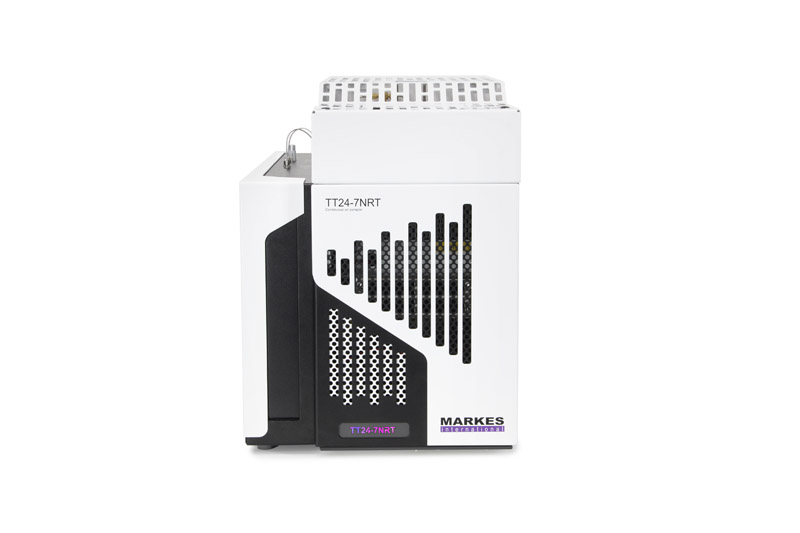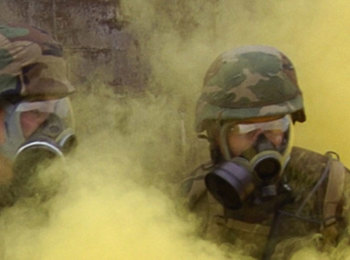
TT24-7NRT – The next generation in continuous, near real time airborne chemical agent monitoring
On-demand webinar
Webinar overview
Airborne chemical warfare agents and toxic industrial chemicals are harmful at such low levels that they cannot be detected using conventional analytical instruments alone.
Pre-concentration by thermal desorption is relied upon globally to deliver automated sampling and sample concentration prior to analysis.
In this webinar Dr Helen Martin introduces the third generation of Markes International’s TT24-7 continuous, near-real-time thermal desorption system, TT24-7NRT.
Building on the fast cycle-times and 100% sample coverage of our tandem trap technology the new TT24-7NRT brings awar-winning Multi-Gas technology to near-real-time chemical agent monitoring.
Dr Martin discusses the benefits of hydrogen carrier gas in near-real-time monitoring and the flexibility of Multi-Gas technology to fit operational and analytical measurement priorities.
She also shows how the TT24-7NRT incorporates powerful analytical quality control measures to support continuous, unattended monitoring.
Key learning objectives
- Understand how tandem trapping technology delivers truly continuous monitoring with no sample blind spot.
- Discover the wide range of compounds monitored by TT24-7NRT and how thermal desorption facilitates monitoring as low as General Population Limits.
- Learn about quality control and software features that support unattended operation over extended time periods.
- Explore the advantages of hydrogen carrier gas in chemical agent monitoring.
Who should watch?
- Government contractors and military personnel monitoring for worker protection in recovery and destruction of chemical munitions
- R&D scientists using chemical agent monitoring to support research and ensure worker safety
- Scientists and engineers responsible for chemical agent monitoring and threat detection programmes
- Air monitoring practitioners who want to enhance their chemical agent monitoring in field locations and mobile or static laboratories.







